Online Clinical Internship in Bowen Family Systems Theory and Therapy
The clinical internship program provides in-depth training on Bowen family systems theory and can include practicum hours for accreditation.
Living Systems is certified by the Private Training Institution Branch (PTIB). For more information about PTIB, go to www.privatetraininginstitutions.gov.bc.ca.
The program works to answer this question: “How does one move from thinking that locates problems in the individual to a view of the family as an emotional system that governs the development of strengths and symptoms in its members?”
Clinical Internship Program Structure
The clinical internship program is a one or two-year part-time training program. Training enables participants to learn how to use family systems theory in their work with individuals, couples, and families. The group meets online weekly, for four hours each week, from early October through mid-June. In the second year, the group meets online twice a month. Trainees ordinarily start a practicum with Living Systems in January. Adequate fluency is required if the trainee expects to counsel English-speaking families.
This program has been approved by the registrar of the Private Training Institutions Branch (PTIB) of the Ministry of Advanced Education, Skills & Training. The Clinical Internship Program began in 1984 and has developed a reputation within the community for providing a quality training option for clinicians and other professionals.
Program Overview
The clinical internship at Living Systems combines a thorough introduction to the family systems theory developed by Murray Bowen with an opportunity to apply the theory clinically and in your own family. Knowledge of theory and the ability to apply theory to one’s own functioning is considered essential for the development of clinical excellence. We place emphasis on assisting trainees to understand their functioning in their own families and to develop a systems orientation to life. Trainees receive supervision of work in their own families and their work with clinical families.
Dr. Bowen’s effort to think toward the natural sciences is also represented in the program. Trainees are exposed to current thinking in such areas as brain research, the stress response system, primatology, immunology, and evolution. By focusing on the common biological basis of human behaviour, the theory provides an approach that transcends culture. Previous trainees from various cultures have found the concepts of Bowen theory applicable to families of their culture.
The program is unique in that trainees receive thorough training in a theoretical orientation that has wide applications beyond the field of counselling. The program has an excellent student-instructor ratio, and trainees receive regular individual and group supervision. We pay trainees to see clients, which can help offset the tuition for the program. Monthly clinical conferences provide an opportunity for trainees to learn from counsellors trained in Bowen theory.
Practicum Hours for Accreditation
Trainees may use clinical hours and supervision time toward accreditation by such groups as the BCACC, CAMFT and CCPA. Trainees in Master’s programs often can use the training program toward fulfilling the requirements for their degree. For an hourly breakdown of the first- and second-year program, please refer to the Program Outline. The program contributes to students becoming competent marriage and family therapists, clinical counsellors, school counsellors, pastoral counsellors, social workers, and human resource managers and is useful for people in law, business, education, and psychiatry. The program has included trainees from all of these professions.
Tuition / Faculty
The tuition for the first year is $3,950, due on the first day of the class in October (or three payments upon request). There is a $100 admissions interview fee. The tuition for the second year (and Residency year) is $2,850. Faculty and supervisors of the program have extensive training and experience in the use of Bowen theory in therapy. For more details, see the faculty profiles on this page.
Application Procedures
Applications are due by August 1st. We will consider late applications depending on the space available. Applicants either have or are pursuing a Master’s degree in the social sciences or related fields, or they demonstrate a combination of life and work experience that, in the judgment of the faculty and clinical supervisor, will enable them to function successfully in the program. For application procedures or for more information, email the Training Department. See the How to Apply section on this page.
How to apply.
Thank you for your interest in the Online Clinical Internship in Bowen Family Systems Theory and Therapy (Online Format) program.
We will accept applications starting on May 1st, with interviews starting in June. The application deadline is August 1st (we may consider late applications).
Program Outline, Admissions Requirements and Applications Procedures are being updated and will be posted by February 15, 2023.
Click Here: For the Program Policies, including Student Statement of Rights, Tuition Refund Policy & Sexual Harassment & Harassment Policy
Contact information:
Please address your inquiries and applications to:
Training Department
Living Systems Counselling
209-1500 Marine Drive
North Vancouver, BC, V7P 1T7
Tel. 604.926.5496
Email us using the form below (training@livingsystems.ca).
The theory postulates that far more human activity is governed by man’s (sic) emotional system than he has been willing to admit, and there is far more similarity than dissimilarity between the “dance of life” in lower forms and the “dance of life” in human forms.”
Meet the Faculty.

Randy Frost
Randy Frost, M. Div., RCC. Randy has taken on a new role as Director of the Bowen Center for the Study of the Family in July 2022. He will continue to teach the Second year and Advanced group cohorts for one more year. Randy trained in Bowen family systems theory and family psychotherapy at the Bowen Center for the Study of the Family in Washington, D.C. He is an ordained Presbyterian minister and is a registered clinical counsellor.
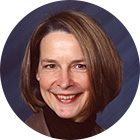
Lois Walker
Ms. Walker has a Bachelor’s Degree in Nursing and a Master’s of Divinity. She spent many years in cancer and palliative care before becoming a registered clinical counsellor in 1990. Ms. Walker has completed four years of post-graduate training at The Bowen Center for the Study of the Family in Washington, D.C.
“As a coach and therapist, I help others to integrate the emotional, intellectual, physical, and spiritual components of their life.”
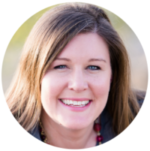
Katherine White
Ms. White is a Registered Marriage and Family Therapist and a Registered Clinical Counsellor in BC. She has been working clinically with individuals, couples, and families for over 15 years in the USA, Australia, and Canada. Katherine has been practicing using Bowen Family Systems Theory since 2010 and believes it provides an important foundation for thinking through events and relationships both with clients and in her own life.
“I believe that Systems Theory can provide a new lens for people to understand their current struggles. I work with my clients to help them reduce anxiety and gain clearer thinking about their current situation. I have seen this produce change in individuals’ lives and their relationships”.
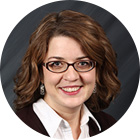
Devana Weiss
Ms. Weiss is a registered clinical counsellor, with a background in career transition and administration. Through her experiences with transitioning individuals and events in her personal life, she became interested in relationship dynamics and the emotional component of life transitions. She eventually returned to school to complete a Master’s degree in counselling. Since then she has taken advanced training in family systems theory and therapy, completing a three-year-post graduate training program.
“I am committed to helping people make lasting changes in their lives. I seek to create and foster a learning environment within a systems perspective wherein people gain awareness and understanding of challenges in their lives; I then coach people as they work to change their thinking and behaviour.”
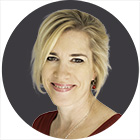
Leila Howard
Ms. Howard is a registered clinical counsellor and has a Master’s degree in Counselling Psychology and advanced training in Bowen family systems therapy. She has a background in Human Resource Management and has worked in high paced business environments. As a counsellor, she works with individuals, couples and family members to create healthier relationships and improve overall functioning in life.
“I am committed to helping people understand the patterns of relating that contribute to the problems they are up against in life. I then coach people as they work to create healthier ways of relating to important people in their lives”.

Dave Galloway
Mr. Galloway has advanced training in family systems theory and therapy and has completed fifteen years of the Clinical Training Program in Family Systems Theory and Therapy. He has extensive experience in business and leadership and has completed UBC’s Family Enterprise Advisor Program. He has his Family Enterprise Advisor (FEA) designation and Clear Leadership Certification.
“In my role as counsellor & coach, I work to help clients think more clearly and objectively about their role in any issue and how they can work to resolve these issues. I believe this gives them skills that can help for the rest of their lives.”
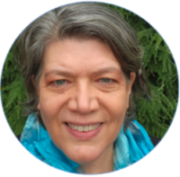
Sharon Salomons
Sharon Salomons applies family systems theory to her clinical work and work in the church. Ordained in the Anglican Church of Canada, she pursued training in Bowen Family Systems Theory and registered as a Clinical Counsellor in 2012. She works part-time in the Anglican church and also maintains a counselling practice. She is currently focusing her clinical work on coaching of clergy.
“Within each of us, our best self longs to emerge and move towards increased differentiation. Both in my work with clients and churches, family systems theory provides a useful lens to think through challenges, which in itself lowers anxiety and allows for clearer thinking to emerge. This clarity can foster greater capacity for reaching personal goals.”
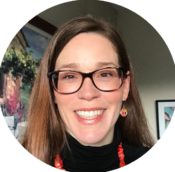
LoriAnn Boutin-Crawford
Ms. Boutin-Crawford is an ordained Lutheran pastor and has worked in the ELCIC for over a decade with church communities throughout the lower mainland, and in a variety of leadership roles within the BC Synod. In addition to her Master of Divinity, she has bachelor’s degrees specializing in Education and Religious Studies with experience teaching in educational systems in Canada, England, Russia, Japan, and Hong Kong. Ms. Boutin-Crawford has completed five years in Family Systems Theory and Therapy with the Living Systems Counselling Post-Graduate Training Program, and two post-graduate years with Living Systems applying Bowen Theory and Theology and Family Systems Theory in Ministry. She is particularly interested in the intersection of Bowen Theory and the function of faith and spirituality and working with clergy and faith communities in the areas of pastoral counselling and practical theology. Ms. Boutin-Crawford appreciates the theory’s flexibility to make space for faith perspectives and belief systems in her work with clients and communities.
“Bowen Family Systems Theory has been a great gift to me in my own personal development within my family and work systems, as it has helped me to think about my own functioning in relationship with others and to identify more solidly who I am as an individual. I believe the learning and application of Bowen Family Systems Theory can provide individuals, families, and communities a framework to understand the complexity of their systems, to identify what is within their sphere of responsibility for growth, and to discern what efforts for change are realistically possible.”
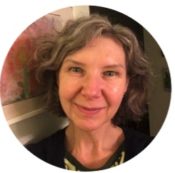
Pamela Richmond
Pamela Richmond is a Registered Clinical Counsellor and a Registered Social Worker. Since 2015 she has worked as a social worker in health care settings, from the emergency department to clinics that provide supports to people with chronic and life-limiting disease. In addition to her social work education (Masters, UVic) Pamela completed 3 years of training in Bowen Family Systems Theory, and she brings a systems approach to her work in healthcare, her clinical counselling practice, and to her efforts to be her best self in her family and workplace relationships.
“It is a fact that we never see ourselves directly; our view of ourselves is always mediated through the mirror, the camera, or our relationships. I believe that a therapeutic process guided by systems theory can help to explore these inversions, projections, and subjective views in pursuit of a more objective view of self. I propose to clients that this process is akin to a research project that lays the foundation for a more flexible, goal-directed life.”
Frequently Asked Questions
How can I benefit from the Living Systems Counselling Clinical Internship Program?
Trainees have the opportunity to learn one theory of human functioning well and how to apply the theory to clinical counselling and other professional fields. The depth and breadth of Bowen theory make it applicable to a wide range of relational, emotional, social, and even physical problems. The theory’s delineation of key variables that influence emotional functioning can also help to address problems in work systems. The emphasis on the trainee applying the theory in his or her own family contributes to the therapist’s own development as a person as well as his or her effectiveness in professional settings.
How can Bowen theory help me in my counselling practice?
Theory guides the clinician to assess the way in which the functioning of the entire family unit is influencing presenting problems. An accurate understanding of the emotional forces at work in creating a problem provides a direction for therapy designed to modify the problem. Because the family functions as an emotional system, a therapist guided by theory can work with any member of the family to address his or her contributions to the problem, even if the symptom is present in another member of the family who refuses counselling. The flexibility of a systems approach provides a variety of ways to approach presenting problems in a clinical setting.
How can a deeper understanding of Bowen theory help me in my professional career?
The Program is designed to help people develop an accurate understanding of theory and to provide an opportunity to begin what can become a long-term effort to work on how each functions in their families of origin. If people are able over time to define more of a self in their nuclear and extended families, the amount of chronic anxiety they carry can gradually decline. The effort to understand and modify the part one plays in family problems can contribute to becoming a more responsible person. A more responsible person not only understands his or her contributions to problems but is able to define what he or she will and won’t do based on principles that they have carefully thought through for themselves. The more a professional person can gradually modify their emotional reactivity with a more accurate appraisal of what he or she can responsibly do with self in challenging circumstances, the more useful and effective that professional can become.
Why does The Program study Bowen theory exclusively?
Living Systems Counselling has adopted Bowen theory as its primary theoretical approach to counselling, education, training and research. In this way, each area of the organization’s mission can complement and inform the others. For trainees to represent the approach taken by Living Systems Counselling with clients, they must have an adequate grasp of Bowen theory and the ability to apply it. We believe it is more important to know one theory well than to have a superficial knowledge of many theories. Bowen theory is an open theory that is subject to modification by new knowledge from the natural sciences. Trainees, accordingly, learn some of the recent developments in such areas as brain research, the stress response and primatology, each of which has relevance to key concepts of the theory.
Why should I choose Living Systems Counselling to learn about Bowen theory?
Living Systems Counselling has offered this program since 1984. From its inception under Dr. Ronald Richardson, the program has focused on marriage and family therapy informed by Bowen theory. The current faculty and supervisors of the Program have extensive training and experience with the theory and therapy and a rich combination of life and work experience. Some of our faculty have trained at the Bowen Center. Together, Living Systems Counselling and its predecessor – the North Shore Counselling Centre – have over forty years of experience with the theory and its applications.
Can I use clinical hours and supervision time toward my accreditation?
Yes, depending on the accrediting body. People interested in accreditation should check with their accrediting organizations for current policies on required clinical hours and supervision.
Can I use the Clinical Internship Program toward academic requirements for completing a master’s degree?
Yes, depending on the policy of the school. A number of students pursuing master’s degrees from various universities in the Lower Mainland and Washington State have been given credit for practicum requirements toward their degree. People interested in this possibility should check with their school.
How much clinical experience will I gain?
Trainees in their first year begin seeing clients of Living Systems Counselling in January and typically develop a caseload of three to five appointments per week. Second-year trainees may develop a caseload of six to ten appointments per week. The opportunity to counsel clients depends on the availability of clients and the readiness of the intern to see clients as determined by the director of training.
What type of relationship does Living Systems Counselling have with The Bowen Center for the Study of the Family in Washington, D.C.?
The Bowen Center website lists Living Systems Counselling as one of eight locations with programs that are “directed by people who trained extensively at the Bowen Center for the Study of the Family and who are in close contact with the most recent developments in Bowen theory and the science that informs theory.” Living Systems Counselling sponsors two conferences every year at which faculty from the Bowen Center present. Our recent Director of Training and Research trained directly with Dr. Bowen and is now the Director at the Bowen Center. This important connection will continue to strengthen the relationship between Living Systems and the Bowen Center. Faculty and supervisors regularly attend conferences and events at the Bowen Center, and our Executive Director trained at the Bowen Center and attends meetings sponsored by the Bowen Center in Washington, D.C.”
As a trainee, how would I benefit from that relationship?
Trainees will learn from people who have trained extensively at the Bowen Center and who are in close contact with the most recent developments in the theory and the science that informs it. Trainees also have the opportunity to learn directly from members of the faculty at the Bowen Center at conferences sponsored by Living Systems Counselling. And the library of Living Systems Counselling contains videotapes and DVDs of presentations and conferences by Dr. Bowen and other experts in Bowen theory and therapy.
Is the Clinical Internship Program registered?
Yes. The Program is registered with the Private Career Training Institutions Agency of British Columbia.
Who are the instructors of the Program?
There are multiple faculty members involved in teaching and providing individual and group supervision in the first year of the program who have over ten years of experience in clinical work and or teaching. The primary instructor for the second year of the program is Randy Frost, who has decades of clinical experience and training at the Postgraduate Program in Family Systems Theory and Family Psychotherapy established by Dr Murray Bowen at the Bowen Center for the Study of the Family. in Washington, DC.
How many trainees are enrolled every year?
The number of students in the first year of the Program can range from four to ten participants, and in the advanced group, between eight and seventeen. The group supervision component of the program has a maximum of six participants per group.
What types of people and professions have completed the clinical internship Program?
The Program has included people working on their master’s degree and people already practicing in their fields. Professions represented in the Program have included clinical counsellors, marriage and family therapists, pastoral counsellors, a psychiatrist, social workers, pastors, educators, nurses, business executives, a lawyer, and a human resource practitioner.
How to apply
Thank you for your interest in the Online Clinical Internship in Bowen Family Systems Theory and Therapy (Online Format) program.
We will accept applications starting on May 1st, with interviews starting in June. The application deadline is August 1st (we may consider late applications).
Program Outline, Admissions Requirements and Applications Procedures are being updated and will be posted by February 15, 2023.
Click Here: For the Program Policies, including Student Statement of Rights, Tuition Refund Policy & Sexual Harassment & Harassment Policy
Contact information:
Please address your inquiries and applications to:
Training Department
Living Systems Counselling
209-1500 Marine Drive
North Vancouver, BC, V7P 1T7
Tel. 604.926.5496
Email us using the form below (training@livingsystems.ca).
The theory postulates that far more human activity is governed by man’s (sic) emotional system than he has been willing to admit, and there is far more similarity than dissimilarity between the “dance of life” in lower forms and the “dance of life” in human forms.”

